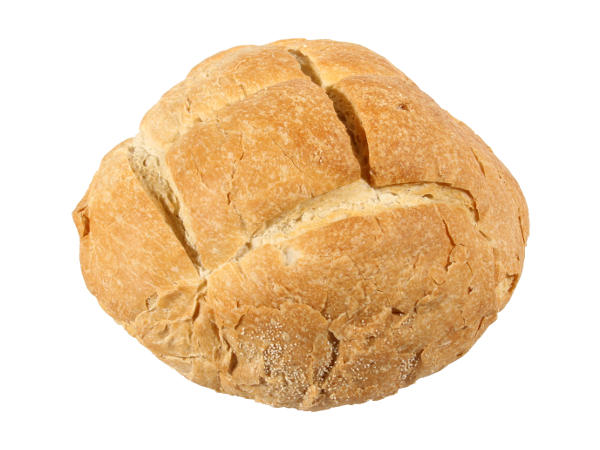A Pepper Grinder Post
Let Nothing Be Wasted
It is not uncommon for me to read a Bible passage that I've read many times before and have some small detail strike me in a new way. This happened recently when I was reading the account of Jesus feeding five thousand men with five small loaves of barley bread (think of something the size of a Panera baguette) and two small fish. This was an incredible miracle, which showed once again that Jesus was who he said he was--the son of the living God. And yet, it wasn't the miracle or its messianic implications that struck me. It was what Jesus said after everyone had eaten as much as he wanted. Here is John 6:12 in the NIV (emphasis mine):
When they had all had enough to eat, he said to his disciples, "Gather the pieces that are left over. Let nothing be wasted."
I spent years working in group homes for people with developmental disabilities. In one home where I was the supervisor, I remember hearing that an employee told her co-worker that I hardly ever got worked up except when someone threw leftovers away. I grew up in a reasonably well-off home where we had plenty of money for food, but where leftovers were almost always carefully used. So, I can totally relate to Jesus wanting to make sure that the leftover pieces of bread (twelve baskets full!) didn't go to waste. And yet, there is something strange about it.
 When Satan tested Jesus in the wilderness by suggesting he command the stones to become bread, Jesus's reason for refusing was not that he couldn't. He knew he could. He had no doubts at all that he could feed well over five thousand people (there were five thousand men; who knows how many women and children were joining in the feast) with a boy's picnic lunch. So why is Jesus worrying about leftover pieces of bread?
When Satan tested Jesus in the wilderness by suggesting he command the stones to become bread, Jesus's reason for refusing was not that he couldn't. He knew he could. He had no doubts at all that he could feed well over five thousand people (there were five thousand men; who knows how many women and children were joining in the feast) with a boy's picnic lunch. So why is Jesus worrying about leftover pieces of bread?
Partly, I don't believe that God likes waste. I say this because of the world he has created. He could have created a world where nothing ever grew old and died, and it's possible that the Garden of Eden was like that before Adam and Eve sinned. But look at the natural world now. Everything dies or gets broken down eventually, but that isn't the end of the story. A dead tree branch becomes home to insects, which in turn feed a woodpecker. Even when it falls to the ground, a mini-forest of lichen starts growing on it, and insects and bacteria have a feast. The process continues until every bit of that branch has either given life to some plant or animal or has enriched the soil, allowing new plants to have more of the nutrients they need.
Contrast this with the way modern man creates things. We aim to make things cheaply that won't get broken down over time (or at least not too quickly). In a way, our crowning achievement is plastic. It's inexpensive, and it lasts and lasts and lasts. Unlike God's tree branch, which nourishes countless plants and animals, our plastic container sits in a landfill or floats in a continent-size mass of plastic in the Pacific Ocean.
This may sound like a pitch for biodegradable packaging. But, while I do have sympathies in that direction, this isn't my main point. The crucial difference between God's Creation and our creations is that God has the power to give life. We can create dead things that last a long time, but God can create life that creates more and more life. God has created a world so bursting with life that even when something dies, it produces more life.
This is the life that was at work in Jesus when he came to earth, but it was far more powerful, far more concentrated than we ever normally see. This is why people were amazed by Jesus, because the things he did were supernatural--above and beyond the natural life we see at work every day. When he was alive, he healed people, fed them, and raised the dead. But when he died! That one grain of wheat fell into the ground and produced a huge harvest. And the life that Jesus gives is not only truly alive, it is everlasting. This is the life that came bursting out of the tomb on that first Easter. This is the life he gives to us. This is why we celebrate. He has risen!
- Pepper
Posted 2019-04-20
*Image Credits: Bread by Cris DeRaud
